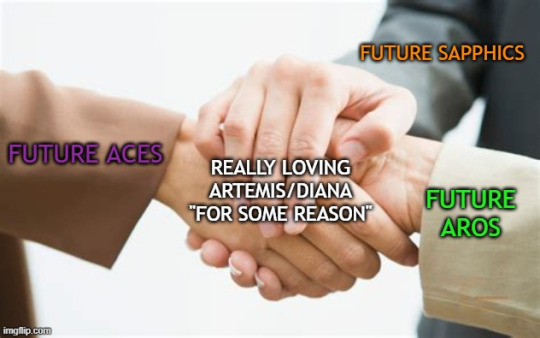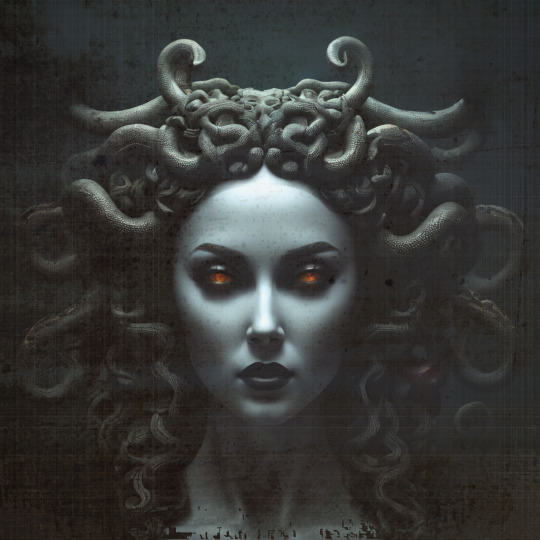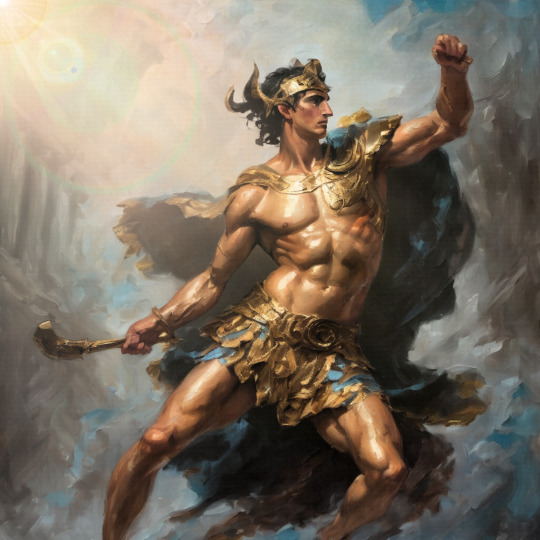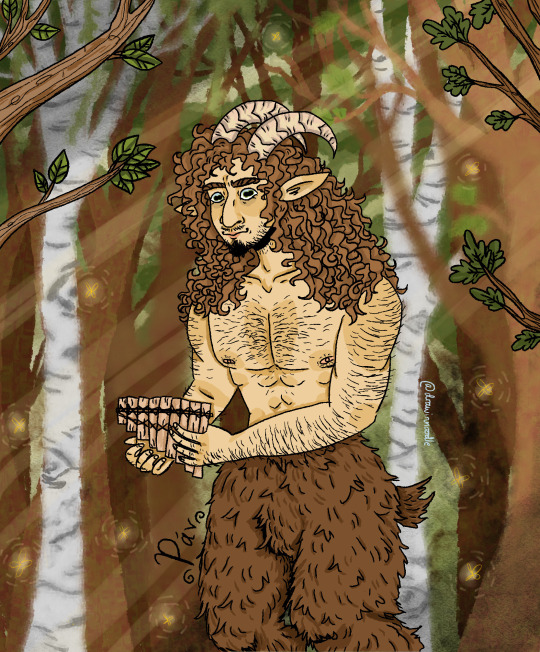#hellenic mythology
Text

this can't be just me
#greek mythology#roman mythology#hellenic pantheon#hellenic mythology#artemis#diana#asexuality#aromantism#queer#ace memes#aro memes#sapphic#wlw
3K notes
·
View notes
Text

Classicstober day 7: Persephone 🌸
#flaroh illustration#tagamemnon#ancient history#ancient greece#greek mythology#persephone#eleusinian mysteries#proserpina#hellenic mythology#hellenic pagan#classicstober23#classicstober#classical reception
683 notes
·
View notes
Text
Thinking about how Athena and Pallas were raised together. And how Athena accidentally killed Pallas. And then Pallas became an epithet for her and in the entire Iliad she’s always referred to as “Pallas Athena”. And how Odysseus, her favorite devotee, is referred to as Pallas Odysseus because of that. Totally not sobbing. Definitely.
#tagamemnon#athena#pallas athena#Pallas#Odysseus#pallas Odysseus#the iliad#the odyssey#the Trojan war#epithets#greek mythology#greco roman mythology#hellenic mythology#vex sings to the muses#fav of mine
149 notes
·
View notes
Text
You know what? I’m just gonna fuckin’ say it. We need to romanticize the relationship between Ares and Aphrodite more.
Yeah, yeah, yeah, I know we all like to characterize them as the mean jock and dumb bitchy prep cheerleader who cheats on her wonderful and kind if conventionally unattractive husband because he’s not jacked or whatever, but how about we move past that Middle School level interpretation of things and look at it from another perspective.
Let’s look at it this way. Hephaestus shows up one day, kidnaps the queen of the Gods, his mother, and demands Aphrodite as his wife for the shitty life he’s had thus far. He doesn’t love Aphrodite. Not really. She’s a consolation prize. A pretty little bauble he can have around his workshop and occasionally have sex with.
Aphrodite isn’t some shallow and vapid bitch who cheats on her loving husband. She’s a powerful woman, a fucking child of Ouranos himself, and she’s the Goddess of LOVE, forced into a loveless marriage with someone who only sees her as a possession. She cheats on him with Ares because Ares isn’t the strong and charming yet deeply flawed man who really does love her.
Hephaestus has the gall to demand Aphrodite be loyal to him? MY man, you essentially press-ganged the Goddess of Love into a loveless marriage. HOW DID YOU THINK IT WAS GOING TO GO?!
I feel for Hephaestus, I really do. He got dealt a shit hand and he’s absolutely a sympathetic character, but I think it’s time we stopped hating on the Goddess of Love for being with the person she loves, rather than the man who forced her into a truly miserable and doomed union.
#incorrect super smash bros#Greek Mythology#Mythology#Greek#Greece#Ares#Aphrodite#Hephaestus#Zeus#Hera#Hellenic Mythology#Ares x Aphrodite#rant#idea#thought#musing#writing#character analysis
780 notes
·
View notes
Text

Medusa, one of three sisters known as the Gorgons, a chthonic monster in tales from Classical Antiquity, whose gaze turned men to stone.
#medusa#medusa's gaze#classical antiquity#Medusa#one of three sisters known as the Gorgons#a chthonic monster in tales from Classical Antiquity#chthonic#hellenic mythology#the gorgons#ancient world
47 notes
·
View notes
Text

the huntress and the moon
#digital art#digital illustration#artists on tumblr#digital aritst#art#artistsontumblr#digital drawing#my art#hellenic polytheism#greek mythology#hellenic pagan#artemis#artemis goddess#artemis deity#hellenic mythology#hellenic worship#hellenic devotion#hellenic polythiest
312 notes
·
View notes
Text
no offense to anybody but Achilles/Patroclus/Apollo would've been hot & loving AF. we've got 3 really attractive, loyal, violent men--
#admin#apollo#achilles#achilles x patroclus#patrochilles#patroclus#the iliad#hellenic gods#greek gods#greek mythology#hellenic mythology
13 notes
·
View notes
Text
Mythic, Divine, Godly, and Religious Objects
As always, process recorded for me and published for others, and my disclaimer is in my bio.
Recently, I received an ask regarding the mythic asteroid Aphrodite [1388] conjunct the Ascendant. I thought I'd explain my process for interpreting charts and placements within them, starting with how I define and differentiate mythic objects. If you are confused or curious about my perspective, you can refer to this post.
What makes an object...
🌟 MYTHIC
Mythic objects are asteroids and minor objects that signify a story or an element from a story of myth, legend, or religion, which the astrologer need not necessarily follow, believe in, or practice.
For example, Orpheus [3361] and Eurydike [75] are figures of Hellenic myth. You don't have to practice Hellenic paganism to refer to them as mythic objects.
Regardless of your beliefs, you will find Eurydike to represent disappearances, romantic distance, and the tragic muse, and Orpheus to represent grief, obsession, and the tragic artist.
Read more on interpreting Orpheus and Eurydike here.
🌟 DIVINE
Divine objects are mythic asteroids and minor objects that signify a cosmic power, spiritual process, or holy place which is significant to the astrologer's faith.
For example, near any spiritual astrologer could refer to Spirit [37452] and treat it as a divine object, as near all religions have a concept that falls in line with that of 'spirit' or a 'spirit'. Thus, it's appropriate to use as such on near all occasions.
However, asteroid Karma [3811] should only be interpreted as a divine object for those who incorporate Hindu concepts of karma into their faith. Non-Hindu astrologers can refer to it, but should do so as a mythic object.
🌟 GODLY
Godly objects are divine asteroids and minor objects that signify the intervention of a specific deity, group of deities, or other named figure which the astrologer worships and which hypothetically possesses its own unique will and perspective.
For example, Christians would treat Christ-related objects as godly and the same for Hindus, pagans to their various pantheons, etc.
For objects of dubious divinity, it relies even more so on personal beliefs. For example, asteroid Lucifer [1932] is only a godly object to an astrologer who practices devil worship. The asteroids of the saints would only be considered godly if a Christian treats them as conduits for the Christian god.
Otherwise, one should treat the object in question as a mythic object, as described above.
Read about how to identify your own prominent godly objects here.
🌟 RELIGIOUS
Religious objects are fundamentally different as they are asteroids and minor objects that function as symbols of religious institutions, rather than the faith, or the stories for which faith is held.
Religious objects may double as mythic or even divine objects, depending on the context of the reading, but not necessarily.
For example, the asteroid Holiday [365443] may be used in a spiritual reading in tandem with a Godly or Mythic asteroid to refer to a specific holiday - perhaps using the aspects between the latter object and the former.
However, it can also represent, independently, the existence of holidays in general, regardless of to whom the days are holy.
Another example would be Church [10343]. It is obviously a religious object, regardless of your faith.
But if one is raised Catholic and has a prominent asteroid Peter [1716], it may also serve the purpose of a mythic asteroid, for he founded the church.
My next posts will be on finding mythic, divine, and godly objects prominent for you based on their type.
Keep an eye out, and I hope this was useful to even a few of you! Thanks for reading ♡♡♡♡♡♡
#astrology#asteroids#aspects#natal chart#western astrology#vedic astrology#divisional charts#faith#religion#religious astrology#paganism#hellenic mythology#hindu mythology#indian astrology#natal asteroids#idk why the fucking text is doing that its really fucking annoying. Tumblr fix your website challenge#literally nothing fixes it and I have a headache so yk fuck it
125 notes
·
View notes
Text
When youre a hellenic polytheist people often mistake the Iliad and Odyssey as a sort of Bible, rather than something like Dantes Inferno where its an interpretation of myths and characters. And like, on one hand its annoying and can sometimes make enjoying those works as a Hellenic Polytheist a case of "needing to explain everytime people ask"
And on the other hand theres definitely something about just quoting "sing to me or muse about the man of twists and turns, driven time and again off course, once he had plundered the hallowed heights of troy" that makes it a lot easier to get through a time period where youve been having several shit days in a row
23 notes
·
View notes
Text
Hi lovelies,
So I’ve been taking a break from revision and I decided to read Jennifer Saint’s ‘Elektra’, which you you should all read because the writing style is just so beautiful. Anyways, the story being told focuses on Elektra, Clytemnestra, and Cassandra and features heavily on the Curse of the Atreides. Said curse is mentioned in a lot of different mythological texts, like Aeschylus’ ‘Aegisthus’ and I think it’s a really fascinating story. So today, let’s talk about the curse of the Atreides.
Also side note, the name ‘Atreides’ is technically singular for one son of Atreus, but when translated people largely accepted it to be the plural form, instead of ‘Atreidai’, but autocorrect wont let me use the latter so for the purpose of this entry, I am going to use ‘Atreides’ as the plural.
The curse on the house of Atreus, interestingly enough, did not start with Atreus, it started with his grandfather Tantalus, king of Lydia. King Tantalus was most beloved by the gods, so much so that he was often welcome at their table. One day they came down to earth to dine with him in his home, but Tantalus harboured a secret hatred for the Gods. Wanting to test their omnipotence, Tantalus murdered his son (Pelops) and offered his cooked flesh as a meal to the gods. The gods were not fooled and did not take a bite of the food. However, Demeter (still possessed with grief for her daughter in Hades), did not see through Tantalus’ trick and took a bite of the boys shoulder. Enraged at the actions of Tantalus, the Gods restored the boy back to life and carved him a new shoulder out of ivory. They placed Tantalus in Tartarus, cursing him with eternal thirst and hunger. At his feet lay a pool of water that evaporated every time he tried to take a sip, and above his head a branch of fruits that would forever remain just out of reach. Fun little bit of etymology, the name ‘Tantalus’ is the root word for the English word ‘tantalise’.
Tainted by his fathers impiety, Pelops only made things worse. Pelops ascended to the throne of Arcadia, and he sought a bride and plotted murder to win her from a suitor. He bribed the suitor’s servant to replace his chariot pins with wax and so the chariot crashed and the suitor died. Rather than reward the servant like he had promised, Pelops threw him from a cliff and as he fell, the servant prayed to the gods that they would punish the sons of Pelops forevermore. Pelops and his bride had three sons, Chrysippus, Atreus and Thyestes. The younger brothers grew to hate Chrysippus, favourite of their father, and fuelled by the same faithlessness that plagued their father, and his father before that, they plotted to kill Chrysippus. When they did so, they fled and arrived in Mycenae, where is was agreed that Atreus would rule.
Thyestes later betrayed Atreus by seducing his wife and Atreus sought bitter retaliation. He murdered Thyestes’ children and invited his brother to a feast. Thyestes was arrogant enough to see this as a peace between the two, and nothing more. When Thyestes had finished his meal, Atreus ordered that the lids be taken off the remaining plates, and on them sat the heads of Thyestes’ children. Thyestes was enraged and killed Atreus, taking the Mycenaean throne for himself.
The two sons of Atreus were not so quick to forget the apparent injustice that had begotten their father. The Atreides, more famously known as Agamemnon and Menelaus, wished to reclaim the throne that was their birthright and so they returned from exile to kill Thyestes, and as an act of mercy allowed his son (their cousin) Aegisthus to flee. Agamemnon became king of Mycenae, whilst Menelaus married Helen of Sparta, and inherited her throne.
When Helen was stolen by Paris and the Atreides summoned all the Greek armies to win her back, they thought their cause a just one, but when there were no winds to set a sail their ships, the blood curse re-emerged. Agamemnon summoned his daughter, Iphigenia, to Aulis under the pretence of a marriage to Achilles, and whilst she stood at the altar, slit her throat, leaving her blood on the sands, and sailing for Troy.
Upon his return from the war a decade later, Agamemnon greeted his wife, Clytemnestra, but much like his uncle Thyestes, he was arrogant and assumed that Clytemnestra had forgiven the murder of her oldest child. He did not know that whilst he fought in Troy, the cousin that he had spared returned to Mycenae and together, his angered wife and vengeful cousin plotted his demise. When he entered the palace after his rerun from war, he was killed in his bathtub, and his wife and her lover, Aegisthus, took the throne for themselves.
However, there was one in Mycenae who remained loyal to Agamemnon, and that was his daughter Elektra. She goaded her younger brother (Orestes), who had never met his father, into sharing her hatred for Clytemnestra. When he grew to be older and upon his return from hiding, he fulfilled what he saw as his filial duty to his father and killed his mother and her lover, the usurpers to his father throne.
Yet, another murder in Tantalus’ bloodline awoke the Furies, bringers of justice. They followed Orestes all the way to Athens where he stood trial for his sins, with Apollo and Athena presiding over the trail. Eventually, Orestes was acquitted for his crime, and the Curse of the Atreides finally died.
So there you have it, the Curse of the Atreides. Sorry that was so grim, but I thought it a rather fascinating bit of mythology, and hopefully you all agree to! I hope you have a lovely lovely rest of your weekend <3
~Z
#agamemnon#menelaus#tagamemnon#iphigenia#clytemnestra#elektra#orestes#house atreides#classical mythology#dark acamedia#classics#hellenic deities#roman history#greek mythology#hellenic mythology#homer's iliad#homer's odyssey#virgil's aeneid
12 notes
·
View notes
Text

Talo's Bay
I'm pretty hyped for AoM Retold
2 notes
·
View notes
Text
My mom sent me this.
As someone who took Classics in uni... this is not wrong.

#hellenic deities#hellenic mythology#greek mythology#zeus#religion#polytheism#lol#where is the lie#accurate af#mythology
6 notes
·
View notes
Text

It's Virgo szn!! ♍👩🌾
To represent this observant sign I've depicted a fun syncretism of Persephone and Demeter🧡
✨Prints and merch: [X]
#virgo sun#virgo rising#virgo moon#virgo#astrology art#flaroh illustration#Persephone#demeter#hellenic mythology#hellenic pagan#virgo season#tagamemnon
146 notes
·
View notes
Text
Aphrodite & Erato & some poor poet and uhhhhhhhh
Heavily inspired off of A Thousand Ships by Natalie Haynes & Aphrodite Made Me Do It by Trista Mateer
I literally just wrote this, May or may not have spelling and grammatical errors. Idk. Enjoy? Or something? Under cut because it’s long as hell.
He could tell, before he looked up at me, that I was not who his prayer had been intended for. My sister always made her presence known, but he didn’t even notice I was there until I had reach past his laptop that he had set upon the altar. I had grabbed two figs, figs meant for my sister, and plopped them into my mouth, one after the other. He didn’t dare look up at me, not yet. I could reduce him to atoms if I wished, a power not afforded to only the major Olympians. Yes, even lesser deities like myself are capable of destruction. He didn’t dare make a noise either, hands still clasped in a prayer. I knew he knew who I was. Even if he didn’t, he knew he had to be stepping on eggshells. If he speaks over me once, I may very well make sure he never speaks again. I could do that, as I have done many times before. But, Aphrodite would despise me if I did. Oh, who am I kidding. There are a million poets in the world, I’ll find another.
I laugh a bit, at his fear and to let him know he can face me. His white knuckles return to tan as his hands loosen, still interlocked. Now here is the fun part, what will he say? How will he kindly reject my inspiration without facing my wrath?
“I’m sorry,”
A great start, of course it was his fault. How could us gods do anything wrong? We couldn’t, that’s the answer. The short answer, at least. If he wanted to recall our misdoings and crimes then he could do so in the realm of Persephone. So for now, everything was his fault.
“As absolutely grateful that I am, having you bestow me with your grace, I do not have the capacity to write love poems. My occupation relies on the musings of Calliope. I hope that your songs will be recorded soon, but I do not think I am the one to do that. Not to imply you have made a mistake, of course.”
I laugh again, as if he had any choice in the matter, whether he wrote down the story I would sing for him or not. I don’t laugh too much, I keep it short. The laughter of a god could swallow a mortal like him whole. Yes, he will do. If his writings are as well-worded as his apologies, I’m sure Aphrodite will be very pleased.
“My sister has agreed to hand you over to me for now, as I am on behalf of Lady Aphrodite. I will give you the tales that you desire, the kind for your occupation. Her story will be told just as I dictate it. Either that, or you will get no story at all.”
He nodded. His fingers finally fall from prayer onto the keyboard, awaiting my words. I could make him wait as long as I’d like, I could make him wait forever. I like poets who don’t try and fight their inspiration, I’m sure my sister does as well. Yes, this one was a good choice.
Where to start, well of course I know where to start. She never liked the epithets her worshipers gave her, couldn’t imagine the epitome of beauty with blood and grime under her nails. Had to make an almost separate figure to try and understand the vastness that is love, in doing so missing the entire point. Aphrodite is love, and that is laughter and flowers, that is sex and erotic flirting, that is rising from the turbulent sea and rising above the stars, that is war and bloodshed, that is graves and the underworld. So we will start with the epithets, as much as she hates them, we can at least get these mortals to try and understand each broken shard of the sculpture they’ve torn apart, in an attempt to idolize each fragment of it. Yes, that is where we’ll start.
#vex sings to the muses#vex brings life to the heroes#original writing#aphrodite#epic poetry#a thousand ships#aphrodite made me do it#greek mythology#hellenic mythology#greco roman mythology
5 notes
·
View notes
Text

Perseus, hero of Ancient Greek Mythology
#perseus#golden fleece#classical heros#alteredai#classical antiquity#ancient greek mythology#mythological art#mythological#hellenic mythology#legendary heroes
14 notes
·
View notes
Text

A devotional drawing of Pan <3
#pan god#paganism#pagan#witch#witchcraft#hellenic deities#hellenic mythology#god pan#green witch#greek gods
30 notes
·
View notes